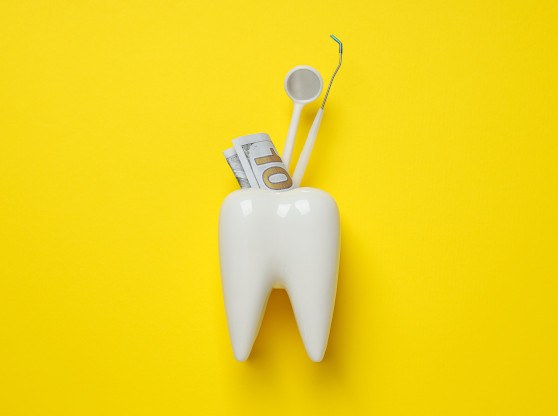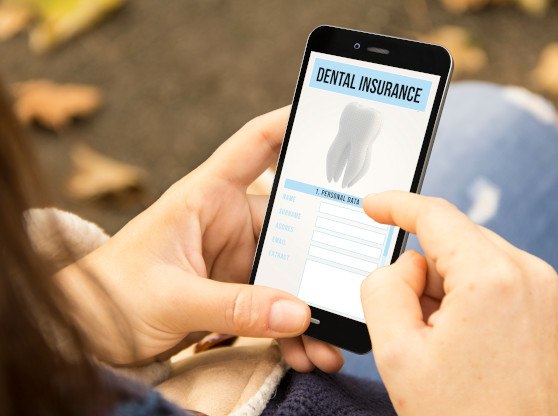Dental Crowns – Coppell, TX
Restoring Young Smiles with Added Protection
It can be challenging trying to protect your child’s smile from tooth decay and damage. Even if you help them practice good oral habits at home and bring them in to see Dr. Linda every six months for checkups and cleanings, problems can still form. Should a cavity require more than a standard filling, you can count on Dr. Linda and our team to restore your child’s smile with dental crowns in Coppell. Call us today to schedule an appointment.
What is a Dental Crown?

A dental crown is a restorative solution that covers the entire tooth, offering maximum protection against future decay and harm. It helps restore function while preserving the natural tooth, reducing its chances of extraction in the future. The crowns Dr. Linda offers are made out of metal-free zirconia or stainless steel, and the type of crown your child will receive will depend on the location of the tooth as well as how damaged it is.
The Dental Crown Process

It generally takes two visits to complete the dental crown process. During the first appointment, Dr. Linda will determine if a crown is the appropriate method of treatment before going over its benefits and how it will help protect your child’s smile. If it’s decided that a crown is the best option, she will begin to remove the decayed or damaged portions of the tooth before filing it down so that the crown fits snugly over the top when put into place.
An impression of the tooth will then be taken so that the final crown can be created by lab technicians. It will take a few weeks for the fabrication process to be completed, so your child will receive a temporary one to wear while they wait.
After several weeks, you and your child will return so that the temporary crown can be removed, and the permanent one put into place. Dr. Linda will then discuss how you can help them take proper care of their new tooth at home.
The Benefits of Getting a Dental Crown

When your child receives a dental crown, they may find it interesting and “cool” because of how it looks inside their mouth. Whether they receive a zirconia or stainless steel crown, many great benefits come with this type of treatment, including:
- Greater Protection: A dental crown offers the protection your child’s tooth needs against future reinfection and harm. It also serves as a pivotal component of their smile, as it offers improved function so that your child can eat without difficulty.
- Reduced Likelihood for Invasive Treatment: Having a dental crown reduces the chances that your child’s tooth will require more invasive treatment in the future (i.e., root canal treatment and tooth extraction).
- Long-Lasting Restoration: Dental crowns, when properly cared for, can last up to 15 years before needing replacement.
Understanding the Cost of Dental Crowns

Now that you understand what a dental crown is and why your child might need one, it’s natural to wonder how much it will cost. There’s no one answer because the total amount can vary from person to person based on their unique circumstances. Once your family has consulted with Dr. Steele, we can provide a full estimate based on our findings and recommendations.
Continue reading to learn more about how the price of your child’s dental crowns is calculated, and feel free to contact us for more information.
Factors That Affect the Cost of Dental Crowns

You might not pay the exact same rate for your child’s restoration as another parent because the calculations are based on your child’s individual needs. Some different factors that can influence your invoice include:
- Whether other procedures are necessary. Before placing a restoration, Dr. Steele will ensure there are no cavities, gum disease, or other treatments required that might interfere with the results. You will be expected to pay for any additional services.
- The type of material used. These versatile prosthetics can be made from different materials that impact the cost. For example, getting one made of metal-free zirconia may be pricier than stainless steel.
- How it’s made. If your child’s crown is made with digital imaging and an onsite CEREC milling machine, you might pay a different amount than someone whose crown is created traditionally at a dental lab.
Does Dental Insurance Cover Dental Crowns?

Thankfully, many dental insurance policies cover about 50% of major procedures like dental crowns. However, every plan is different, so there’s no guarantee; you may want to check your details to verify what’s included. For example, your coverage might also have certain restrictions, like a waiting period before benefits kick in or a limited number of teeth that can be treated.
If you’re having trouble finding the information, please let us know. Our friendly office staff is familiar with different programs and can help your family maximize your benefits.
Options for Making Dental Crowns Affordable

We know that not everyone has a dental insurance policy, but we don’t want your budget to keep your family from receiving vital dental care. If you’re worried about how to pay for your child’s dental crown, you can potentially benefit from:
- Flexible financing. We’ve partnered with CareCredit, so you can break up your total invoice into more manageable installments if your application is approved.
- Membership plans. We offer several membership plans for children at every stage of dental development that include discounts on various services.
Dental Crowns FAQs
Dental crowns are designed to restore damage to large areas of teeth that may not be salvageable with a regular filling, including teeth that are broken or in need of a root canal. Keeping even your child’s baby teeth intact is extremely important for helping them maintain proper tooth spacing as they grow.
Are Dental Crowns Safe?
Dental crowns are considered completely safe when placed by an experienced dentist like Dr. Steele. Dr. Steele uses either stainless steel or zirconia crowns, which unlike metal fillings, do not contain mercury and are completely nontoxic.
There is always a risk that a patient could have an allergic reaction to a particular type of metal alloy used in crowns, however, these reactions are usually minor. If your child has metal allergies, discuss this with Dr. Steel and she can recommend a metal-free crown instead.
Should your child experience any gum irritation, swelling, or redness near their crown, contact Dr. Steel right away, as this could indicate an allergic reaction.
Do Dental Crowns Get Cavities?
While no, your child’s crown itself cannot get cavities, it is still possible for the tooth underneath it to get them. In fact, a crown offers no real reduction in cavity risk over a natural, uncrowned tooth.
Cavities are caused by poor oral hygiene. This can allow bacteria and plaque to form at the gumline where the tooth and crown meet. It can then travel underneath the crown and damage the healthy portion of the tooth, too.
Preventing cavities with crowns is easy; just brush your teeth twice a day and floss at least once a day as you would your healthy, natural teeth, and never skip your child’s semi-annual cleanings and exams.
Does It Hurt to Get a Dental Crown?
When your child gets a crown from Dr. Steele, she will ensure that the tooth is properly numbed before she begins the procedure. For this she will use a topical anesthetic, however if your child is excessively fearful, Dr. Steele does offer sedation dentistry options.
If you are returning to have a crown placed after preparation, Dr. Steele may not numb the tooth again, however this is typically not painful. Still, if you would like your child numbed for this portion of the procedure, discuss this with Dr. Steele at your appointment.
Over the next few days, your child’s treated tooth may feel a bit sensitive, especially if they had a root canal. You can use over-the-counter pain medication to alleviate any discomfort, but don’t hesitate to contact Dr. Steele if the pain worsens.
Are Dental Crowns Permanent?
Dental crowns are not permanent restorations, however with proper care they can last up to fifteen years. A dental crown procedure is irreversible, as you cannot regrow tooth enamel, so getting a crown on a permanent tooth is a lifelong commitment.
To keep your crown in excellent condition so that it lasts as long as possible, be sure to help your child practice proper oral hygiene, including brushing their teeth at least twice a day, flossing at least once a day, wearing any prescribed mouth gear such as bite guards or retainers, and never skip their semi-annual dental exams and cleanings.

